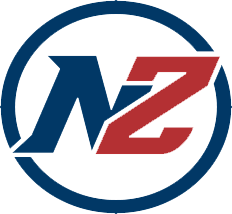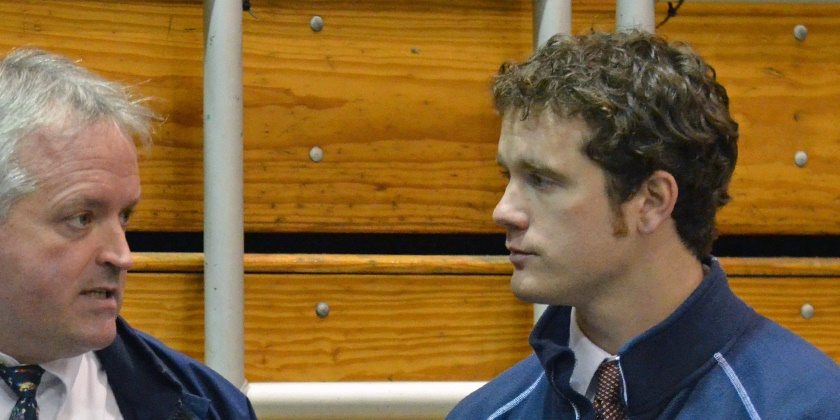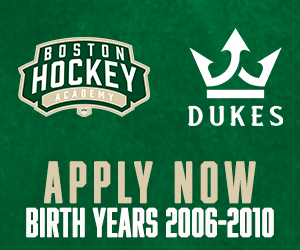For anyone scouting in the Northeast, you know Sean Flanagan. A tireless worker who is at every rink watching every game. A former player at St. Lawrence, he has since gone on to be an assistant coach at Hobart and a Director of Hockey Operations at UMass Lowell. Five years later he returns to the ECAC where he played to be the assistant coach at Cornell. He takes over for Topher Scott, another well respected coach in the hockey ranks who stepped down after the season.
We caught up with Sean and asked him about the new job, how he got here and what he’ll bring to the Big Red.
NZ: You were born in Canton, your uncle was the Head Coach of the St. Lawrence women’s team. What was it like being able to attend St. Lawrence as a player? Did you look at any other schools or did you know that is where you wanted to play?
Flanagan: Playing at St. Lawrence created great experiences both in hockey and life. Playing for Joe Marsh, like I told someone a couple years ago, you don’t know how much you learn from him until you’re a little older and a little wiser. Joe is a great mentor on and off the ice. Any kid in the North Country grows up with St. Lawrence and Clarkson hockey, and there’s been a few people who have got to live the childhood dream at both of those schools. My brother and I are very fortunate to of been able to live it through, it gives you a great appreciation for how hard it is. Hopefully there’s a few more in the future that are able to do it as well. I spoke to a few schools but always knew where my heart was, and when Joe called and asked me to stop up to the rink, and offered me, it wasn’t a tough decision.
NZ:You were held out of the 2009-10 season at St. Lawrence. Describe that experience because you returned the next season as a captain and had the best season of your college career?
Flanagan: It was tough to sit a whole year, no one likes to watch. In the end though, it gave me a better appreciation for the game, and no one ever thinks they’ll actually have those long-term injuries causing you to miss that much hockey. Especially in college hockey, where there’s a clock. Watching from a different perspective knowing you won’t play a game you can take a step back to watch and simply learn more. Being voted an assistant was a nice shot in the arm having not played a game in a long time and taking that as a sign that you’re looked up to still. Joe was great through my time there. He helped with completing my master’s degree in a year. I’m very grateful for that as that is probably an achievement I wouldn’t have earned without his help and the red-shirt year. There are a lot of SLU guys coaching that played for him and it’s no surprise why.
It does show that it was the best season on a stat page, but you always want more, like winning the ECAC and going further, like anyone, you always want to accomplish that in college and wish you did more to win it.
NZ: You started your coaching career at Hobart after playing pro hockey. How did that come about and what was that experience like?
Flanagan: I was planning to go back play again but it fell through late August with coaching change within the organization. I was waiting on a contract and I just fell into it like many people have. The timing was right and couldn’t pass up an opportunity to start a coaching career with Mark Taylor at Hobart. All of his former assistants at Hobart and people who have worked under him at other schools, are now in Division I hockey and are successful. It was a no brainer decision. He has a great hockey mind and develops his players and coaches every day. He teaches the details of recruiting and win’s the right way, year in and year out. On top of that, he’s a great person. When you’re on the road and people always ask you to say hello to him and ask for his notes, and tell you you’re in a great spot, you know you’re working for the right guy. I couldn’t have asked for a better experience for three years, coaching with him.
NZ: Describe the transition going from a D3 assistant coach to Director of Hockey Ops at the D1 level. How was working under one of top coaches in the game in Norm Bazin?
Flanagan: The transition was a process, being off the recruiting trail, to being in the office every day learning the daily administrative duties expected. Working for Norm was great. It was a great opportunity at Lowell and not a tough decision when offered to be part of their staff with Cam Ellsworth and Andy Jones as well. Being around the rink every day even though it wasn’t a coaching position, you’re able to learn a lot from all of them, and they’re great people. Norm’s one of the best guys out there and the body of work throughout his coaching career certainly does the talking for him.
NZ: Take us through the Cornell move from the deciding to apply to interviewing to being selected? Why Cornell?
Flanagan: I heard the position opened and with Norm’s blessing went forward with application process. I was happy to be granted the interview and once offered the position, it wasn’t a tough decision to take another step career wise. From playing in the league and growing up seeing them play every year in Appleton, Cornell has always been a top team in the ECAC and at the national level. You always want to be around good people, and an opportunity to work with Coach Schafer and Coach Syer was a big part of it. The hockey tradition at Cornell, the alumni who have moved on to the NHL and other levels of pro hockey, Lynah Rink being so in Ccredible, and the combination of education and hockey that Cornell has to offer makes it a very attractive place not only to work but to recruit players to.
NZ: What skill, experience, expertise do you bring to Cornell to help them get to the top of the ECAC?
Flanagan: I believe hard work and ability to learn is a skill, it’s always something you must keep elevating, to get to the top and stay at the top of the ECAC. I bring a positive attitude to the rink creating an environment where players want to learn and get better around you. Having been a forward, working daily with them to continue to develop and always finding a way to improve each day. You need to get that little bit of edge on your opponent, always adding to your game. Using the video to teach and the experience from learning recruiting from Mark at Hobart. Seeing the way the game develops from so many different vantage points and having to adapt to it, I believe I can relate to all players having had many different years as a player. From experiencing a good year, to a not so good year, to having to persevere through difficult injuries. All those things are part of the game but you have to get back after it and continue playing.
Photo Credit: Dan Hickling/ Hickling Images





